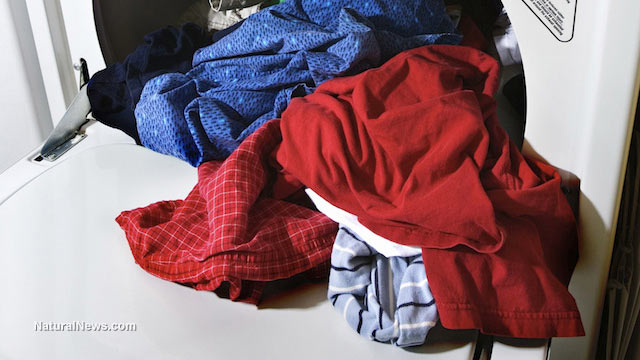 Parler
Parler Gab
Gab
Finance giants BlackRock, Vanguard both hold stakes in smart clothing
In partnership with the Naval Information Warfare Center, Pacific, IARPA is busy developing shirts, pants, socks, and even underwear that "listen" and record both video, audio, and pictorial "intelligence" for the spooks in Washington, D.C., to look at and consume – again, for "national security." IARPA awarded research contracts totaling more than $22 million to a company called Nautilus Defense and Leidos, Inc., according to an August 9 announcement from the Pentagon (aka, the Pentagram). SRI International, the Massachusetts Institute of Technology (MIT), and Areté are all also receiving cash to help develop smart clothing technology, though in amounts that remain undisclosed. Finance giants BlackRock and Vanguard, both of which profited from the sale of Wuhan coronavirus (COVID-19) "vaccines," are similarly invested to the gills in smart clothing – they are also invested in so-called "vaccine passports" and "digital wallets," which will likely play a major role in the coming new age. "IARPA is proud to lead this first-of-its-kind effort for both the IC and broader scientific community which will bring much-needed innovation to the field of ASTs [Active Smart Textiles]," said Dawson Cagle, PhD, the SMART ePANTS program manager. Cagle claims he came up with the idea while trying to concoct better health-monitoring options for his diabetic father – because there is always some "heartwarming" excuse for the latest dystopian nightmare to be unleashed. Back in January, an article published in PubMed hyped the possibility of electronic textiles as representing a "new age of wearable technology for healthcare and fitness solutions." Its many possible applications include in bedding, diapers, and even COVID face masks. Wearable smart clothing can also be used for "monitoring health conditions, treating chronic diseases, rehabilitation, and improving health and social lifestyles," the paper further states. "SMART ePANTS could revolutionize the Internet of Things by collecting data to help intelligence, medical and sports communities," says the Armed Forces Communications and Electronics Association. Critics like Ted Claypoole, meanwhile, a legal expert and cyberspace law committee chair for the American Bar Association, says the privacy concerns stemming from this invasive technology are "obvious." The fabrics currently in development by the IC are "not just for keeping our people safe," he told The Defender, "but also for finding and following smart-fabric wearers who do not know they are being followed." If it has "smart" in the name, you would be dumb to buy it. Learn more at Surveillance.news. Sources for this article include: ChildrensHealthDefense.org NaturalNews.com ncbi.nlm.nih.govTim Ballard: Biden’s DHS and HHS now function as a child trafficking delivery service
By Laura Harris // Share
Mark Zuckerberg’s Threads censors COVID-related searches to DISCONNECT people from knowledge
By Kevin Hughes // Share
Governments continue to obscure COVID-19 vaccine data amid rising concerns over excess deaths
By patricklewis // Share
Tech giant Microsoft backs EXTINCTION with its support of carbon capture programs
By ramontomeydw // Share
Germany to resume arms exports to Israel despite repeated ceasefire violations
By isabelle // Share










